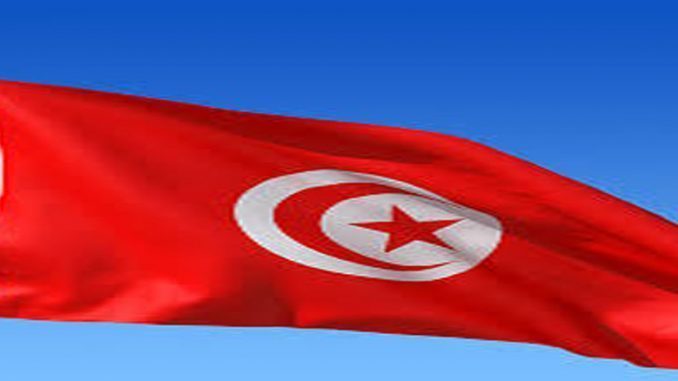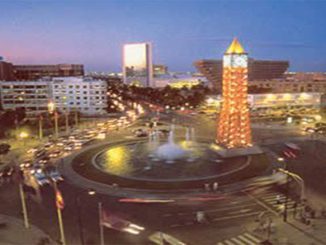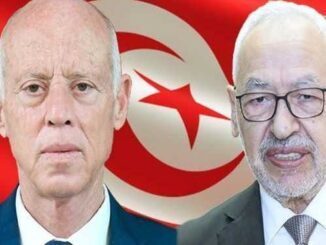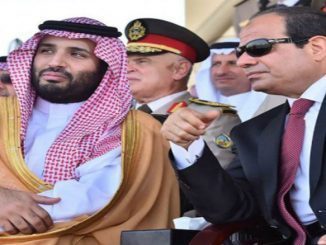
Tunisians head to the polls on September 15 to elect a new president in the second such vote since the 2011 revolution.
When President Beji Caid Essebsi died in late July, three months before his mandate was due to end, Tunisian authorities reacted swiftly.
The news of his death was communicated to the public within an hour, the speaker of parliament was sworn in as interim leader shortly thereafter, and the electoral commission brought forward the date for the presidential election.
But the peaceful handover of power, a rarity in the Arab world, belies the political instability and economic stagnation that have plagued the country since it democratised in 2011.
Tunisians will head to the polls on Sunday to choose Essebsi’s successor, with 26 candidates vying for the job.
There are a number of prominent figures running for the position, including Prime Minister Youssef Chahed, Defence Minister Abdelkarim Zbidi, jailed media mogul Nabil Karoui and Abdelfattah Mourou, the first presidential candidate put forward by the Islamist party Ennahdha.
Analysts say the large pool of high-profile candidates makes it difficult to predict the outcome.
Here are four things to know about Tunisia’s upcoming presidential election.
Marginal favourite
The latest pre-election surveys have shown jailed media magnate Nabil Karoui with a narrow lead over his rivals.
The owner of Nessma TV, one of the country’s most popular television stations, was arrested in late August on money laundering and tax evasion charges.
Before his imprisonment, Karoui faced the threat of being eliminated from the race, after parliament approved controversial amendments to the electoral law in June.
The changes would have prevented candidates who “advertised” their philanthropic initiatives or had given “favours in cash or in kind” in the year prior to the vote from running for office.
The channel has played up Karoui’s charity work, showing footage of him handing out food and clothing.
The late Essebsi, however, failed to ratify the law and the electoral commission said Karoui remains a candidate unless convicted.
Economic priorities
Tunisia’s economy has struggled to recover since the 2011 revolution, in which longtime ruler Zine El Abidine Ben Ali was removed amid massive popular street protests.
Its national debt amounts to more than 70 percent of gross domestic product (GDP), a significant increase compared with the pre-revolution level of 40 percent.
Successive governments have failed to shift a stubborn unemployment rate that hovers above 15 percent, and reaches more than 30 percent in some marginalised interior regions.
Attacks on popular tourist sites in 2015 led to a sharp decline in the number of visitor arrivals, devastating a vital sector for the economy.
The economy’s underperformance since 2011 could also be affecting Tunisians’ perception of democracy.
A 2018 Afrobarometer survey found that only 46 percent of Tunisians believe that democracy is the most preferable form of government, down from 70 percent in 2013.
Meanwhile, support for military rule, one party-rule and a strongman who “abolishes the parliament and elections” altogether has reached 47 percent, 41 percent, and 35 percent, respectively.
In a recent report, the International Crisis Group has also warned against a “general crisis of confidence in the political elite”.
That conclusion, analysts say, is confirmed by recent voting trends.
The turnout for the 2018 local elections was 36 percent. Support for political parties has also dropped, as best exemplified by independent candidates’ success at the local polls, winning 33 percent of the vote, compared with Ennahdha and Nidaa Tounes’s 29 percent and 22 percent, respectively.
“Divisions within Tunisia’s political leadership are preventing the government from addressing the country’s political and socioeconomic challenges,” the International Crisis Group report said.
The nature of the presidency
Following Ben Ali’s overthrow in 2011, Tunisia opted for a parliamentary system. The presidency was relegated to a secondary role, leaving it in charge of foreign policy, defence and national security.
However, confusion over the president and prime minister’s respective spheres of influence has led to a state of paralysis in some instances.
A partial cabinet reshuffle in late 2018 by Prime Minister Chahed led to a standoff with Essebsi that alarmed Tunisia’s international donors.
Although the prime minister was acting within the confines of the constitution, Essebsi said the move had “displeased him”.
The relationship between the two leaders further deteriorated when Chahed defected from Essebsi’s Nidaa Tounes party, after falling foul of the president’s son, Hafedh Caid Essebsi.
Nidaa Tounes, which lost more than half its members in parliament due to infighting, could not bring down the head of the government, who enjoyed the backing of Ennahdha and a coalition of centrist parties.
But while Chahed continued exercising power, passing laws still required the president’s approval, as highlighted by the failed bid to ban Karoui from the presidential race.
“The political system emanating from the current constitution suffers from several weaknesses, and is a system that has almost, nearly paralysed government work,” Essebsi said in an interview in 2017.
“Its hybrid nature does not help the government, any government, or the executive authority in general, to carry out its duties in managing the state and achieving development goals within a democratic society.”
No constitutional court
Tunisia does not have a constitutional court.
The body was due to be formed within a year of the country’s adoption of its 2014 constitution but disagreements over its composition have stood in the way of its creation.
A temporary body known as the Provisional Instance to Review the Constitutionality of Draft Laws was created in 2014 but its mandate was limited to reviewing draft laws.
Experts say Tunisia desperately needs a constitutional court to arbitrate disputes between the judiciary, executive and legislative branches of government.
“[The court’s creation] will be a major signal to the Tunisian public that the transition is moving forward and should ease some of the burden on the judiciary and parliament, which have each taken on aspect of the court’s role,” according to a recent report by the Carnegie Middle East think-tank.
“The court should ensure that the president does not encroach on the duties of the government.”



